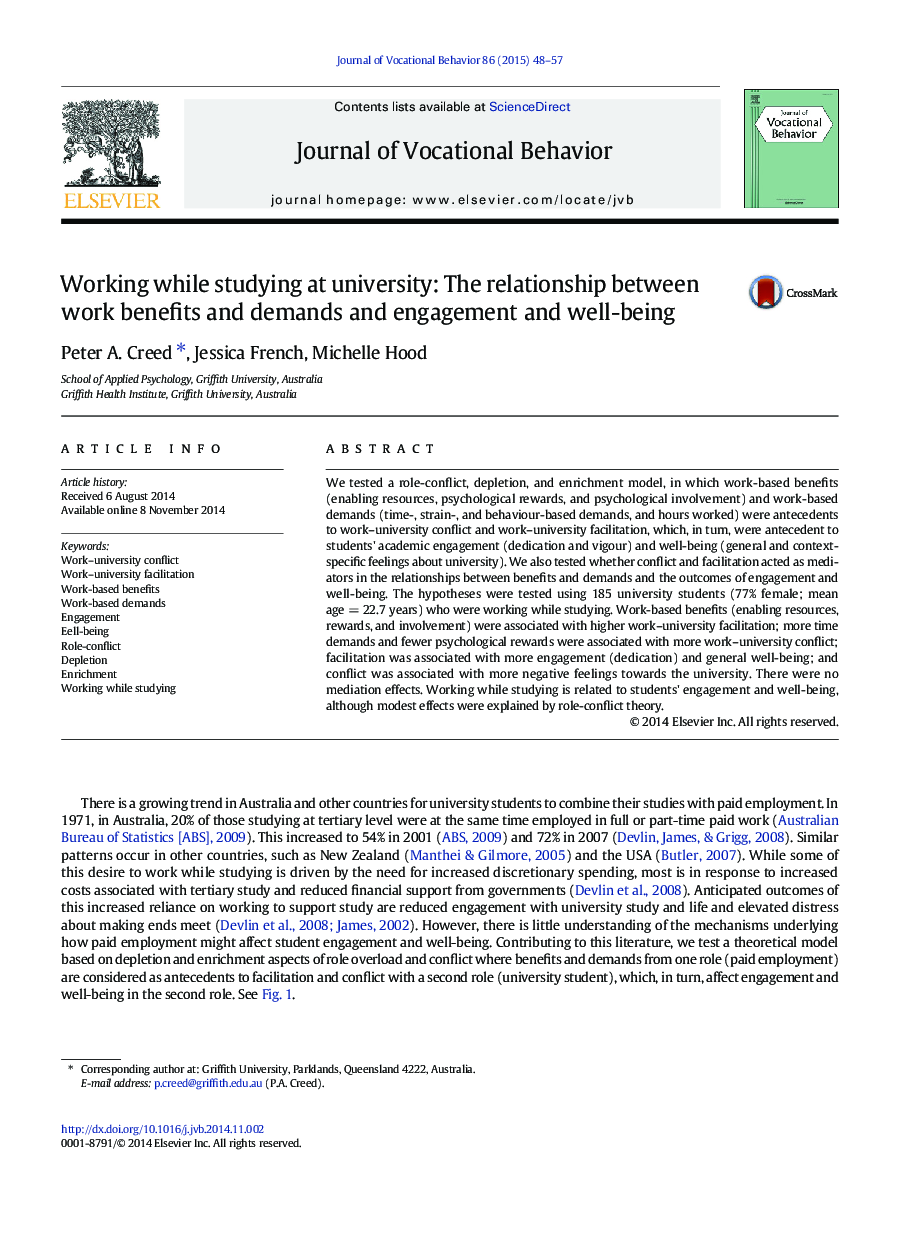| Article ID | Journal | Published Year | Pages | File Type |
|---|---|---|---|---|
| 886829 | Journal of Vocational Behavior | 2015 | 10 Pages |
•The number of university students who work while studying continues to rise.•We test how work demands and resources are related to engagement and well-being.•Demands and resources relate strongly to work–university facilitation and conflict.•Facilitation and conflict are related modestly to engagement and well-being.•Both work-based resources and demands are important to students who work.
We tested a role-conflict, depletion, and enrichment model, in which work-based benefits (enabling resources, psychological rewards, and psychological involvement) and work-based demands (time-, strain-, and behaviour-based demands, and hours worked) were antecedents to work–university conflict and work–university facilitation, which, in turn, were antecedent to students' academic engagement (dedication and vigour) and well-being (general and context-specific feelings about university). We also tested whether conflict and facilitation acted as mediators in the relationships between benefits and demands and the outcomes of engagement and well-being. The hypotheses were tested using 185 university students (77% female; mean age = 22.7 years) who were working while studying. Work-based benefits (enabling resources, rewards, and involvement) were associated with higher work–university facilitation; more time demands and fewer psychological rewards were associated with more work–university conflict; facilitation was associated with more engagement (dedication) and general well-being; and conflict was associated with more negative feelings towards the university. There were no mediation effects. Working while studying is related to students' engagement and well-being, although modest effects were explained by role-conflict theory.
